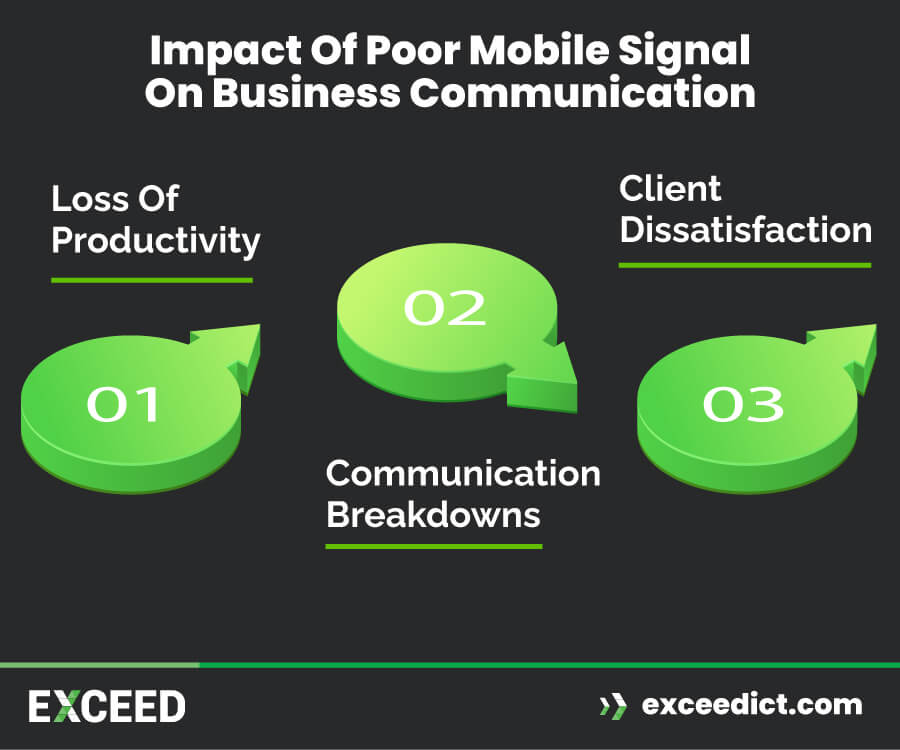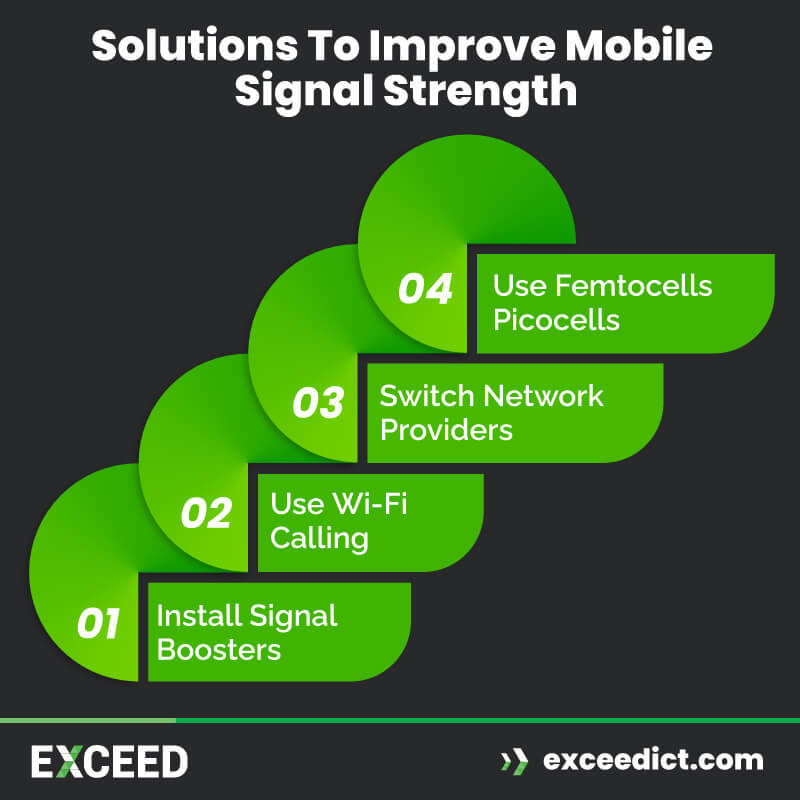
Mobile Signal Strength in Business Communication
Mobile devices have become indispensable tools, enabling employees to work from anywhere and stay connected with clients and colleagues. However, the effectiveness of these devices heavily relies on the quality of the mobile signal. Poor signal strength can lead to dropped calls, missed messages, and overall frustration, disrupting business operations and affecting relationships with clients. A reliable solution to this issue is boosting mobile signal, which can significantly improve connectivity and ensure smooth communication.
This article will delve into the significance of mobile signal strength in optimising business communication. We will explore the factors that affect signal quality, discuss the impact of poor signals on business operations, and provide practical solutions to improve signal strength. Additionally, insights from industry experts and future trends in mobile signal optimisation will be examined to help businesses stay ahead in the communication landscape.
Understanding Mobile Signal Strength
What is Mobile Signal Strength?
Mobile signal strength refers to the power level of the radio frequency signal received by a mobile device from a cellular network. It is typically measured in decibel-milliwatts (dBm) and ranges from -30 dBm (excellent signal) to -110 dBm (poor signal). A strong signal ensures clear voice calls, faster data transmission, and seamless connectivity, which are crucial for business communications.
Factors Affecting Signal Strength
Several factors can influence mobile signal strength, including:
- Distance from Cell Tower: The farther you are from a cell tower, the weaker the signal.
- Obstructions: Buildings, trees, and geographical features can block or weaken signals.
- Network Congestion: High network traffic can lead to signal interference and reduced quality.
- Weather Conditions: Rain, snow, and other weather conditions can impact signal transmission.
The Impact of Poor Mobile Signal on Business Communication

Loss of Productivity
Poor mobile signal strength can lead to frequent interruptions in communication, causing delays in decision-making and task completion. Employees may struggle to participate in conference calls or access important emails, resulting in lost time and decreased productivity.
Communication Breakdowns
When calls drop or messages fail to send, critical information may be lost or misinterpreted. This can lead to misunderstandings between team members, clients, and partners, jeopardising projects and business relationships.
Client and Customer Dissatisfaction
Clients and customers expect reliable communication from businesses. Poor mobile signal can result in missed calls, delayed responses, and overall poor service quality, leading to dissatisfaction and potential loss of business.
Identifying Signal Issues in Your Business
Common Signs of Poor Mobile Signal
Signs that your business may be experiencing poor mobile signal include frequent dropped calls, slow internet speeds, inconsistent voice quality, and the need to move around the office to find a signal. Recognising these issues early can help in taking prompt corrective measures.
Tools for Measuring Signal Strength
There are various tools available to measure mobile signal strength, such as signal metre apps and specialised hardware devices. These tools provide real-time data on signal quality, helping businesses identify problem areas and devise appropriate solutions.
Solutions to Improve Mobile Signal Strength

Installing Signal Boosters
Signal boosters amplify weak signals, improving call quality and data speeds. They consist of an external antenna, a signal amplifier, and an internal rebroadcast antenna, which work together to enhance signal strength within a specific area.
Utilising Wi-Fi Calling
Wi-Fi calling allows mobile devices to make and receive calls over a Wi-Fi network instead of relying solely on cellular signals. This is especially useful in areas with poor mobile coverage but strong Wi-Fi connectivity.
Switching Network Providers
If your current network provider consistently delivers weak signals, consider switching to a provider with better coverage in your area. Conducting a signal strength comparison can help determine the best provider for your business needs.
Optimising Office Layout for Better Signal
Avoiding Signal Blockers
Materials like metal, concrete, and certain types of glass can block or weaken signals. Avoid placing mobile devices in areas surrounded by such materials. Keeping doors open and using signal-friendly materials in office design can also help.
Strategic Placement of Wireless Devices
Positioning wireless routers and signal boosters in central locations can maximise coverage. Avoid placing these devices near other electronics that may cause interference, such as microwaves or cordless phones.
The Role of 5G in Enhancing Signal Strength
What is 5G?
5G – fifth generation of mobile network technology, offering faster speeds, lower latency, and greater capacity compared to its predecessors. It is designed to support the growing demand for high-speed data and reliable connectivity.
Benefits of 5G for Business Communication
With its enhanced speed and reliability, 5G can significantly improve mobile signal strength and overall communication quality. It enables seamless video conferencing, faster data transfer, and improved connectivity, even in densely populated areas.
Future Trends in Mobile Signal Optimization
Emerging Technologies
Technologies such as small cell networks and advanced beamforming are set to revolutionise mobile signal optimisation. These innovations promise to provide stronger and more reliable signals, even in challenging environments.
Expected Developments in Mobile Networks
The future of mobile networks lies in the integration of artificial intelligence and machine learning to optimise signal distribution dynamically. This will enable real-time adjustments to signal strength based on usage patterns and environmental conditions.
Practical Tips for Businesses
Regularly Updating Mobile Devices
Keeping mobile devices updated with the latest software ensures compatibility with network enhancements and improves signal reception. Regular maintenance and updates are essential for optimal performance.
Educating Employees About Signal Optimization
Training employees on best practices for optimising signal strength, such as avoiding signal blockers and utilising Wi-Fi calling, can help maintain effective communication. Awareness is key to minimising disruptions.
Summary of Key Points
Improving mobile signal strength is vital for optimising business communication. By understanding the factors affecting signal quality, implementing practical solutions, and staying informed about emerging technologies, businesses can enhance their communication efficiency and customer satisfaction.
Final Thoughts and Recommendations
Investing in mobile signal optimisation is a strategic decision that can yield significant benefits. Businesses should regularly assess their communication needs, explore available solutions, and adopt best practices to ensure reliable and effective mobile connectivity.
Frequently Asked Questions
What are the main factors that affect mobile signal strength in an office environment?
Several factors can impact mobile signal strength in an office setting, including the distance from the nearest cell tower, physical obstructions such as walls, buildings, and geographical features, network congestion during peak usage times, and even weather conditions. Materials like metal, concrete, and certain types of glass can also block or weaken signals, leading to poor reception indoors.
How can installing a signal booster improve mobile signal strength?
Signal boosters enhance mobile signal strength by amplifying weak signals and redistributing them within a specific area. They consist of an external antenna that captures the existing weak signal, a signal amplifier that boosts the signal, and an internal antenna that rebroadcasts the strengthened signal inside the building. This setup improves call quality, reduces dropped calls, and increases data speeds, making communication more reliable.
What is the role of 5G in improving business communication?
5G technology significantly enhances business communication by providing faster data speeds, lower latency, and greater network capacity compared to previous generations. With 5G, businesses can experience seamless video conferencing, rapid data transfer, and consistent connectivity even in densely populated areas. This makes 5G ideal for supporting modern business operations that rely on high-speed, reliable mobile communication.
What are some practical steps businesses can take to optimise mobile signal strength in their offices?
Businesses can take several practical steps to optimise mobile signal strength, including installing signal boosters, utilising Wi-Fi calling to make and receive calls over a Wi-Fi network, strategically placing wireless routers and devices in central locations, and avoiding materials or structures that block signals. Regularly updating mobile devices and educating employees about best practices for signal optimisation are also important steps to maintain effective communication.
How can businesses measure and identify mobile signal issues within their premises?
Businesses can use signal metre apps and specialised hardware devices to measure mobile signal strength in real time. These tools provide data on signal quality, helping identify areas within the office with poor reception. Recognising signs such as frequent dropped calls, slow internet speeds, and inconsistent voice quality can also indicate mobile signal issues. Identifying these problems early allows businesses to take corrective action and ensure reliable communication.
Looking for Experts to Improve Mobile Signals Strength ?
Don’t let poor mobile signal strength hold your business back.
Contact us on 1300 832 639 for hassle-free Wireless Solutions Service.
Our team of experts is ready to design and implement a solution that meets your specific needs, ensuring that you stay connected when it matters most.
With our award-winning expertise and dedication, we ensure cost reduction and grow your Business.
Find Other Blogs
- Improve and Boost mobile signal for your business.
- The Crucial Role of Enterprise Wireless Solutions in Modern Businesses.
- Telstra Enterprise Wireless For Business in Australia.
- Wireless Emergency Kit : Staying Connected When it Matters.
Stay connected with EXCEED ICT
Stay connected with EXCEED ICT by joining our social networks (given at footer). Get the latest updates, news, and tips for enterprise device deployment. Follow us on Twitter, Facebook, and LinkedIn for the best enterprise device deployment solutions.
Help us to improve our enterprise by rating us for Wireless Solutions on Google Maps. Your feedback and comments are valuable to us and will be used to make our services even better.


